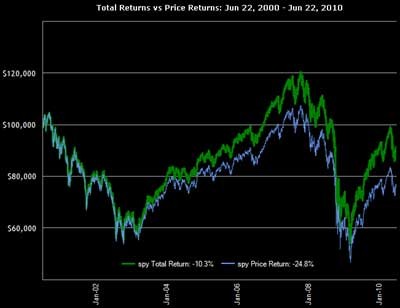Why Bother Investing In Dividend Stocks When You Have ETFs
Post on: 29 Март, 2015 No Comment

Over the past two weeks, Ive been looking at the top dividend growth U.S. stocks and the top dividend growth Canadian stocks held in the biggest dividend ETFs in terms of market cap. I have explained that by looking at the top dividend ETF holdings, you can build a very interesting list of potential stocks to add to your dividend portfolio.
I started with 2 simple investing principles to build my theory:
- Portfolio managers are professionals who have access to more time and resources to build their portfolio than the average investor.
- The fact that ETF behemoths maintain a position in a stock and keep buying it ensures a certain level of demand, read value, for this stock.
Based on these very same principles, an investor could think: why should I bother picking my own stocks when I can buy a dividend growth ETF?
This is a legitimate question and depending on which kind of investor you are, ETF investing could be very interesting. Lets take a deeper look into the world of dividend ETF investing.
#1 Loss of Control
The first obvious reason why you would like to keep your dividend growth portfolio instead of picking a dividend ETF is to remain in control of your portfolio. When I looked at the Canadian dividend ETFs, I found many stocks that I would not personally own. But if I buy the ETF, I wont have a choice but to buy the package.
The argument that portfolio managers are professionals and have more resources doesnt mean that they are better than the market or the average investor all of the time. In fact, they can also develop the tendency of believing that they saw something nobody else saw and pick a relatively bad stock thinking it will bounce back. If you like to know whats inside your portfolio, dividend ETF investing might not be the way for you.
#2 Loss of Dividend Growth
There are 2 factors that affect negatively dividend growth within an ETF:
- TheMERaffects your overall dividend yield
- ETFs are separately managed stocks and may not follow individually held stocks dividend policies
For example, during the last crisis back in 2008, many dividend ETFs reduced their dividend payouts while individual companies didnt. Many stock holders didnt feel that payout reduction since many companies kept their dividend as is during the crisis.
So if you compare your chances of increasing your dividend payout over a long period of time, dividend ETFs may slow down your performance. That is, conditional to picking the right individual stocks!
#3 Loss of Control over Dividend Payouts
When a dividend is issued, there are basically three actions you can take:
- Cash the payout as a revenue stream
- Use the dividend payout to buy another stock
- DRIP and increase your holdings in your stock
I personally use the second option right now as I want to build a bigger portfolio with more stocks. Eventually, I will use DRIPs to increase my existing positions once I hold enough stocks in my portfolio. I would not have this kind of choice if I was going to buy dividend ETFs as the payout will be paid in bulk and not for individual stocks. So I couldnt increase my position in KO while cashing my STX dividend payout. I would have to either increase my position in the ETFs or cash my dividend payout.
When ETF Investing Could Be Very Interesting
What I dont like about dividend ETFs is definitely the lack of control over the core of the portfolio. As individual investors, I think we all think we can beat the ETF by our own investing methods. I know, its probably not right, but the psychological aspect of investing is often stronger than the rationale!
The more I think of ETF investing, the more I look toward a different portfolio model. What if you could build a core of ETF INDEXES (not dividend) and add dividend growth stocks around it to boost its yield?
Index investing provides a huge advantage when compared with stock picking and its called diversification. The fact that you are mixing a growth (index) strategy with a value (dividend) method should ensure a smoother investment return year after year.
The way I manage my dividend portfolio is getting closer to this technique right now as Im buying indexes with my dividend payouts until I have enough cash to buy another position for my portfolio. Once I have all my stocks picked, I might start building a core in indexes while my dividend stocks continue to pay me.
What do you think of this investing technique? Have you ever considered mixing indexes and dividend stocks in the same portfolio?














